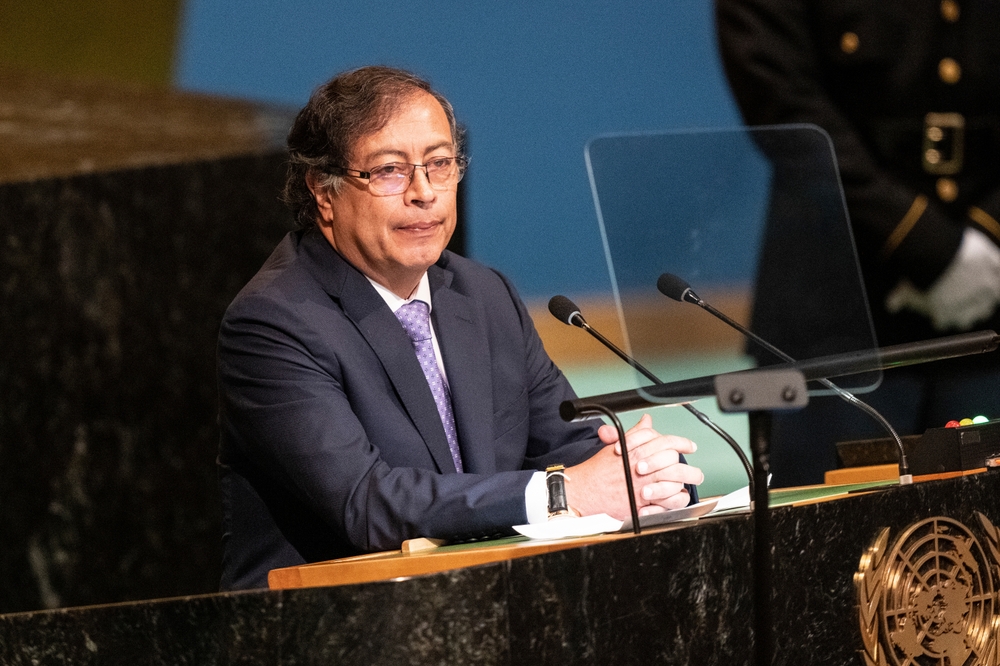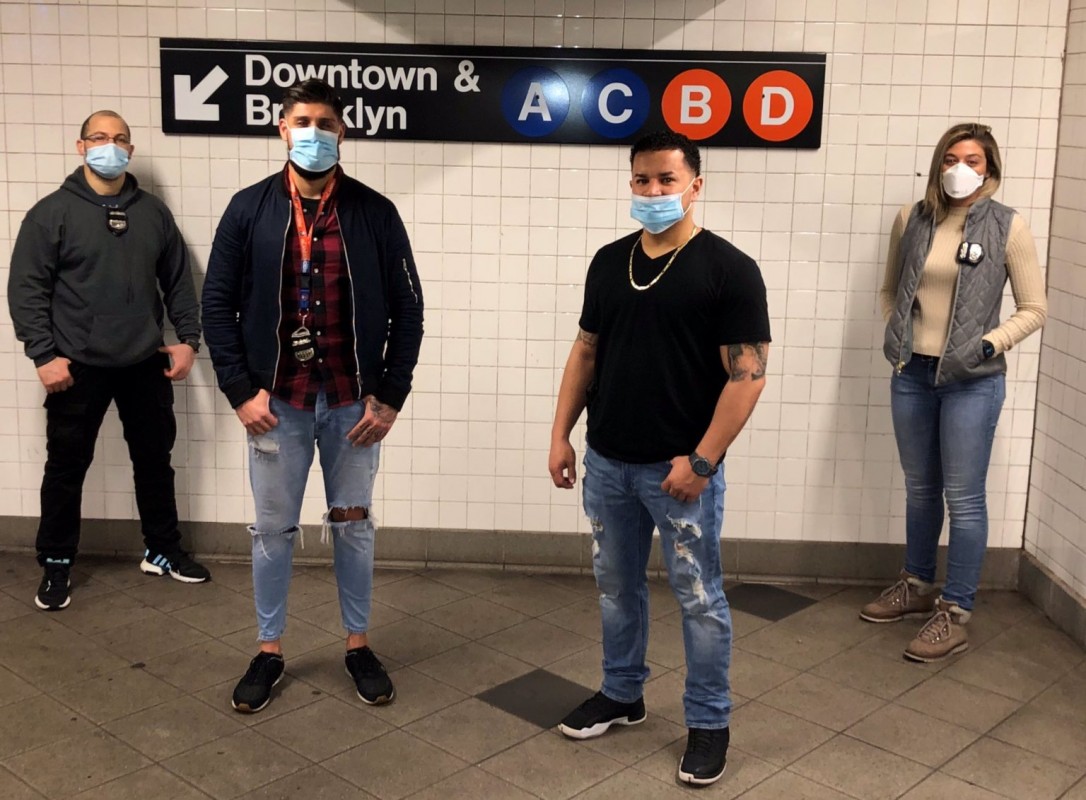The US Government has just updated its list of major drug producing or trafficking countries, criticising Colombia’s difficulties to control its illegal cocaine market. In turn, President Gustavo Petro, in his struggle to maintain control over territorial governance, coca cultivation and political attacks, is exploring the possibility of resuming land and aerial fumigation of coca crops with glyphosate, a known carcinogenic and environmentally damaging herbicide.
The potential return of glyphosate is a controversial announcement: its aerial fumigation has been suspended since 2015 (and later highly restricted by the Constitutional Court in 2017) and strongly opposed by Petro in the past. This news was met with strong criticism from national organisations and regional drug policy advocates, who defend that other less environmentally and carcinogenic alternatives are still possible.
Decertification: the American “stick” of prohibition
Every September, the American President issues a “Determination on Major Drug Transit or Major Illicit Drug Producing Countries” for that incoming year. This list (known as the Majors List) identifies key drug producing or trafficking nation-states that target the US as a final destination market. This in turn justifies American investment in counter-narcotics operations there.
A key component of the Majors List is to certify whether the listed countries are fully cooperating with American or international drug control efforts. If their counter-narcotic efforts are not considered sufficient, or that they are not doing enough to stem drug production or flow to the US, this could lead to the decertification.
In practice, decertification could mean a suspension of American financial or military assistance specific to counter-narcotics operations, automatic credit or loan denials, or other sanctions, tariffs or trade restrictions applied on the country’s economy.
In the 2025 update to the Majors List announced this week, the current Trump administration deemed that “under Petro’s misguided leadership, coca cultivation & cocaine production in Colombia has increased to historic levels”, blaming his “accommodation” of narco-terrorist groups. The statement adds that:
“[We] will consider changing this designation if Colombia’s government takes more aggressive action to eradicate coca and reduce cocaine production and trafficking, as well as hold those producing, trafficking, and benefiting from the production of cocaine responsible, including through improved cooperation with the United States.”
For now, the US has refrained from imposing any sanctions alongside decertification, issuing instead a “national interest waiver” that maintains aid and military funding.
Petro bit back at the American announcement on social media, stating that coca cultivation had grown during the previous Colombian administration. He pointed out that a reduction in cocaine production would be driven not by a reduction in coca cultivation, but in demand from the US and Europe.
Ustedes comienzan por una mentira fáctica señores US embassy. El crecimiento de cultivos de coca se presenta en el gobierno de Duque, y con fumigación forzada. Es la política de los EEUU la que ha fallado.
Para que disminuyan los cultivo de hoja de coca lo que se necesita no es… https://t.co/qwA499APT0
— Gustavo Petro (@petrogustavo) September 16, 2025
Past Colombian decertification
The US has decertified Colombia in the past: between 1996 and 1997, the country’s President, Ernesto Samper Pizano, was accused of having his presidential campaign funded by drug traffickers. The decertification was understood to be an American effort to oust President Pizano; and while the policy failed in this objective, it led instead to greater political instability in the country.
The legacy of decertification effort was Plan Colombia, a massive military crackdown on the cocaine industry throughout the 2000s which included ramping up violence against cartels and spraying coca fields with glyphosate – a known carcinogenic substance that poisons the surrounding land and water supplies. Aerial glyphosate spraying was banned by the Constitutional Court in 2015, putting an end to this damaging practice.
With a left-leaning President in power, it’s unclear whether Colombia will choose to double down on its fight against paramilitary groups to recover its American certification. Speaking to Gimena Sánchez-Garzoli, Director for the Andes at the Washington Office on Latin America (WOLA), she confirmed that decertification was primarily meant to punish Petro’s leadership.
“[Decertification] will embolden the opposition against Petro”, Sánchez-Garzoli told TalkingDrugs.
“It will also lead to backlash against the U.S. since Colombians find it offensive that this decision is unilateral and does not take into account that it is the buying and consumption of these drugs that creates the demand. Colombians see that they are bearing the brunt of negative consequences of anti-narcotics operations such as security forces killed, while the U.S. takes a moral stance against them.”
The return of glyphosate
Before decertification, Petro’s government has been trying to regain control over the illegal cocaine market, which has continued to grow despite record seizures by law enforcement. The state had even announced a potential return to the aerial fumigation of illegal coca plantations with glyphosate specifically in areas where civilians attacked the Army. This announcement came after a public uprising in which 45 Colombian soldiers working on coca crop eradication were kidnapped by hundreds of suspected FARC dissidents.
This surprise announcement was rolled back by Montealegre, who clarified that aerial fumigation would remain banned, but that its manual use would be explored only in extreme situations and scenarios where “it is scientifically demonstrated that the use of this tool will not cause risks to the civilian population”. News of the state’s purchase of 22,000 litres of glyphosate in May confirmed that glyphosate will regardless return to Colombia – whether by land or air.
Speaking to Sergio Pérez, a drug policy analyst at Colombian research and advocacy organisation Dejusticia, he clarified that aerial glyphosate spraying had only been banned through a judicial decision; it had never been definitively prohibited, meaning its return is possible. However, its effectiveness is up for debate: beyond the state having no standards or procedures to resume spraying, it’s an expensive intervention with low returns.
Aura Maria Puyana from Viso Mutop, an organisation representing rural Colombian communities, told TalkingDrugs that the return of aerial glyphosate spraying would be “a return to the militarized anti-drug policies that have been applied in Colombia for sixty years, without positive results.”
“[Aerial glyphosate spraying] undermines the foundations of the alliance established with the coca-growing peasantry to gradually and concertedly transition toward licit economies. Far from building peace, the social and armed conflict in Colombia will worsen, and prohibitionist policies will once again punish the poorest population,” Puyana added.
What needs to be done
Instead, what Dejusticia calls for is an expansion of voluntary crop substitution programmes, which are more cost-effective and potentially permanent.
“The essential difference between eradication by spraying and voluntary eradication is that voluntary eradication is that it remains in the medium and long term,” Pérez commented.
In the lead up to decertification, WOLA highlighted that Colombian decertification would cause serious damage to the country’s political, humanitarian and development goals. Sánchez-Garzoli confirmed with TalkingDrugs that “the only way that anti-narcotics can be more effective is through dialogue and shared responsibility, not imposing a will on another government.”
While President Petro may understandably feel frustrated with the challenges he has faced in maintaining peace and control over the country. This is not helped by growing American threats of violence on cartels in Latin America, and their military encroachment across the region. But resuming a practice that is so symbolically connected with past violent and environmentally devastating policies will do little to build community faith in Petro’s government and his supposedly different approach to drug harms.


